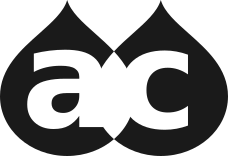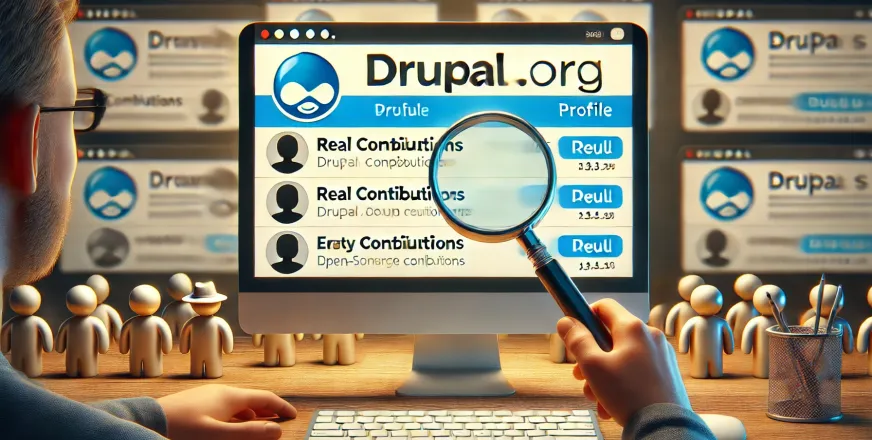In my previous post, I discussed how the WordPress controversy between Matt Mullenweg and WP Engine highlighted something that's been on my mind for years - the maker-taker dynamic in open source. I referenced Dries Buytaert's thoughtful framework where makers actively contribute while takers use the software without giving back.
But I suggested there's a third category we need to talk about: the "fakers" - those who create an appearance of contribution without truly engaging with the community's needs. Since publishing that post, many conversations have deepened my thinking about this nuanced space between makers and takers. It's time to explore this concept further.
We All Start Somewhere: The "Good Faker"
Let's be honest - we all start as fakers to some degree. When I was new to Drupal events, I'd sit quietly during technical conversations, listening intently until someone mentioned something I actually knew about. Then I'd jump in with my one insight, trying to establish myself as part of the conversation. All I could contribute was that single piece of knowledge, but it was a start.
This is what I call a "good faker" - someone at the beginning of their journey who might need to project more confidence than they feel, but who is actively working to build their knowledge and skills. You might need to fake it at the beginning, and that's not wrong - as long as you're committed to learning and gaining experience.
The key difference is intention and trajectory. Are you stretching yourself while actively learning, or are you deliberately misrepresenting your expertise with no plans to close the gap?
When Takers Pose as Makers
The more problematic situation arises when organizations or individuals claim to be active contributors without meaningful engagement. I've seen companies prominently display Drupal certification logos while having no presence in the contribution records. Some showcase themselves as "Drupal contributors" but don't participate in any community events, forums, or code sprints.
This behavior creates a market distortion. In government contracts and large commercial projects, procurement teams often lack the technical knowledge to distinguish between authentic contributors and those simply wearing the uniform. The result? Projects sometimes go to those who excel at marketing rather than building.
The Big Company Paradox
Companies with significant financial resources can often secure contracts that smaller, more specialized agencies can't compete for. This isn't inherently problematic - except when those companies lack genuine expertise in the technology.
I experienced this firsthand during DrupalCon Latin America 2015. I met representatives from a large international company who introduced me to a young developer who mentioned he had started with Drupal "a couple of years ago." Later that same year, I was hired by Acquia to help a major customer in Costa Rica - and there was this same developer, now positioned as their "senior technical architect."
When the project was completed, we discovered a critical problem with their CRM integration. The implementation was fundamentally flawed, revealing a clear lack of experience that had been obscured by impressive titles and corporate backing. The client ultimately paid the price for this misrepresentation.
Learning from Tim Doyle: The Right Way to Start
Not all newcomers to the Drupal ecosystem are problematic fakers. The current CEO of the Drupal Association, Tim Doyle, offers a perfect counter-example.
I've heard comments about Tim not being "from Drupal" before taking his role. But this reflects a misunderstanding of what makes someone valuable to our community. I met Tim in Paris during an event - we were heading out for drinks with friends, and he tagged along. Within minutes of establishing rapport, he started asking thoughtful, probing questions: Why isn't Drupal growing faster? What did I think about our challenges? What approaches from other projects might help us? What would I do differently?
These are the marks of a true maker in the making! He may have been new, but he was putting in the effort and demonstrating the right attitude. In my years around the Drupal Association, I've observed several CEOs, and what sets successful ones apart isn't their technical history but their genuine curiosity and commitment to understanding the community.
How to Detect a Faker: Drupal.org as the Source of Truth
So how do we distinguish between good fakers (newcomers on a learning journey) and problematic ones (those who misrepresent their expertise)? I believe drupal.org should be our primary source of truth.
The Drupal community has built one of the largest most comprehensive contribution recognition systems in open source. Everyone who joins Drupal.org gets a personal profile displaying their contributions - whether that's code, documentation, event organization, or mentorship. Both individuals and organizations earn recognition for their contributions, creating a transparent record of community engagement.
Making drupal.org the definitive source of truth presents a chicken-and-egg challenge. While we have good systems in place, more is needed. Companies won't fully invest in maintaining their drupal.org presence until it's widely recognized as the standard for evaluating contributors, but it can't become that standard until more companies consistently showcase their work there. Despite this challenge, I believe drupal.org remains our best platform for transparency in contribution.
When evaluating potential partners or contributors, I look at whether they have an active drupal.org profile with a history of contributions. Are they involved in community initiatives beyond just their own projects? Do they participate in Drupal events, whether local meetups or global conferences? Is their claimed expertise reflected in their visible work and engagement?
None of these factors alone provides a definitive answer, but together they paint a picture of authentic community participation versus mere marketing claims.
Moving Forward Authentically
The maker-taker-faker dynamic isn't about creating rigid categories or gatekeeping. It's about fostering transparency and authentic engagement. We all start somewhere, and the Drupal community is generally welcoming to newcomers who are open about their journey.
What matters is the direction you're moving. If you're new, be honest about what you know and don't know while actively learning. If you're established, ensure your claimed expertise matches your visible contributions. If you're leading a team, invest in genuine skills development rather than title inflation.
Open source thrives on authentic participation. By recognizing the difference between newcomers on a growth path and those making empty claims, we can build a healthier ecosystem that rewards genuine contribution and expertise.
What's your experience with authenticity in open source? Have you observed the faker phenomenon in your work? I'd love to hear your thoughts and experiences.


Add new comment